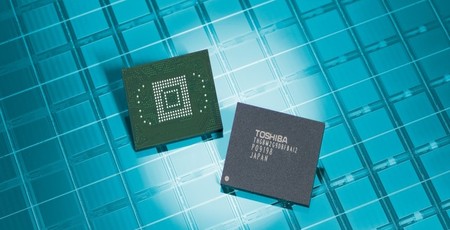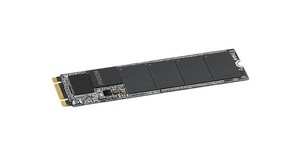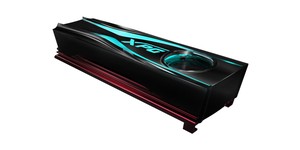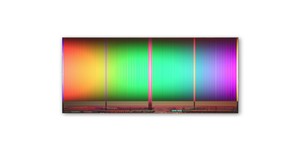Researchers boost SSD throughput by 15 percent
June 26, 2017 | 10:00
Companies: #ieee #research #yonsei-university

Researchers at the School of Electrical and Electronic Engineering, Yonsei University, have published a paper suggesting that a new input-output (I/O) scheduler dubbed Dynamic Load Balanced Queuing (DLBQ) could boost the throughput of solid-state drives by up to 15 percent.
As time and the industry's rigid adherence to fulfilling Moore's Law marches on, the capacity of individual memory chips - both dynamic and non-volatile - increases. Even so, in the world of high-end desktops (HEDT) and server systems it's rare to use only a single chip: The majority of solid-state drives (SSDs) on the market today use multiple chips in an array exposed to the host system as a single physical drive, quietly putting the data wherever it needs to go as it is written and reading it back again after.
Traditional approaches to using these multiple chips, however, leave potential performance unused, according to a paper by Seoul-based Yonsei University researchers Myung Hyun Jo and Won Woo Ro this week. 'SSDs suffer from the contention problem caused by multiple I/O requests and experience significant performance degradation,' the pair claim in an abstract for the paper. 'This is mainly due to the concurrently accesses to a finite set of flash memory chips.'
The proposed solution: a new IO scheduler which aims to more smartly balance the load between memory chips. 'In this paper we propose Dynamic Load Balanced Queuing (DLBQ) that reorders the I/O requests and evenly distributes the accesses on flash memory chips to avoid contention. For that purpose, we have introduced a virtual time method which chases the run-time status of the SSD.'
According to the researchers' test results, which were performed using both synthetic microbenchmarks and real-world server load analysis, the potential gains from implementing DLBQ on an off-the-shelf solid-state drive are well into double-figure percentages. 'The experimental results show that the throughput of DLBQ is improved by 11 percent on a 128GB SSD and 15 percent on a 256GB SSD,' the pair claim, 'while ensuring a bounded latency.'
The paper, Dynamic Load Balancing of Dispatch Scheduling for Solid State Disks, has been published in Issue No. 6 of Volume 66 of the IEEE Transactions on Computers journal. The abstraction is available on the IEEE website now, while the full paper can be purchased for $19 for those seeking more information.

MSI MPG Velox 100R Chassis Review
October 14 2021 | 15:04








Want to comment? Please log in.